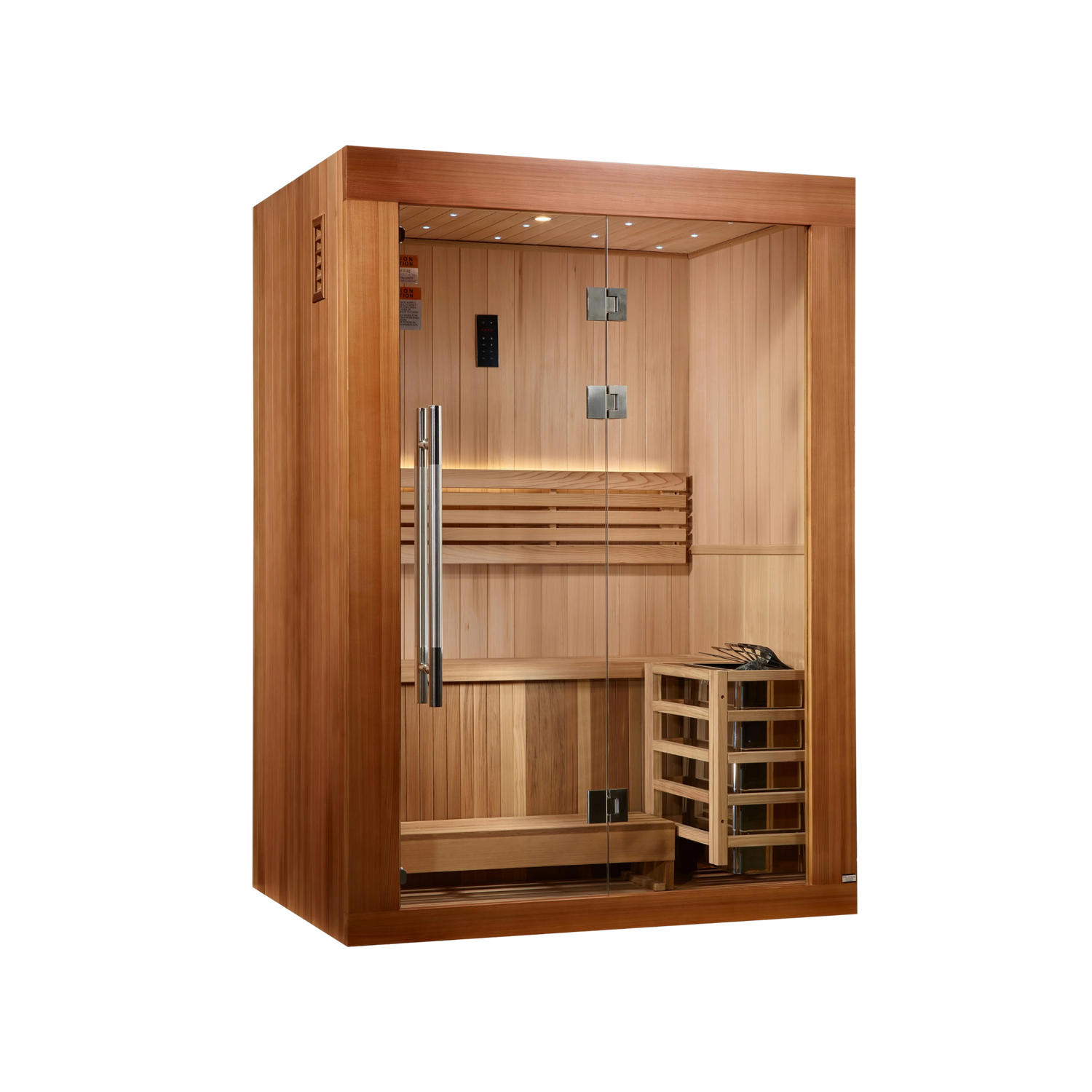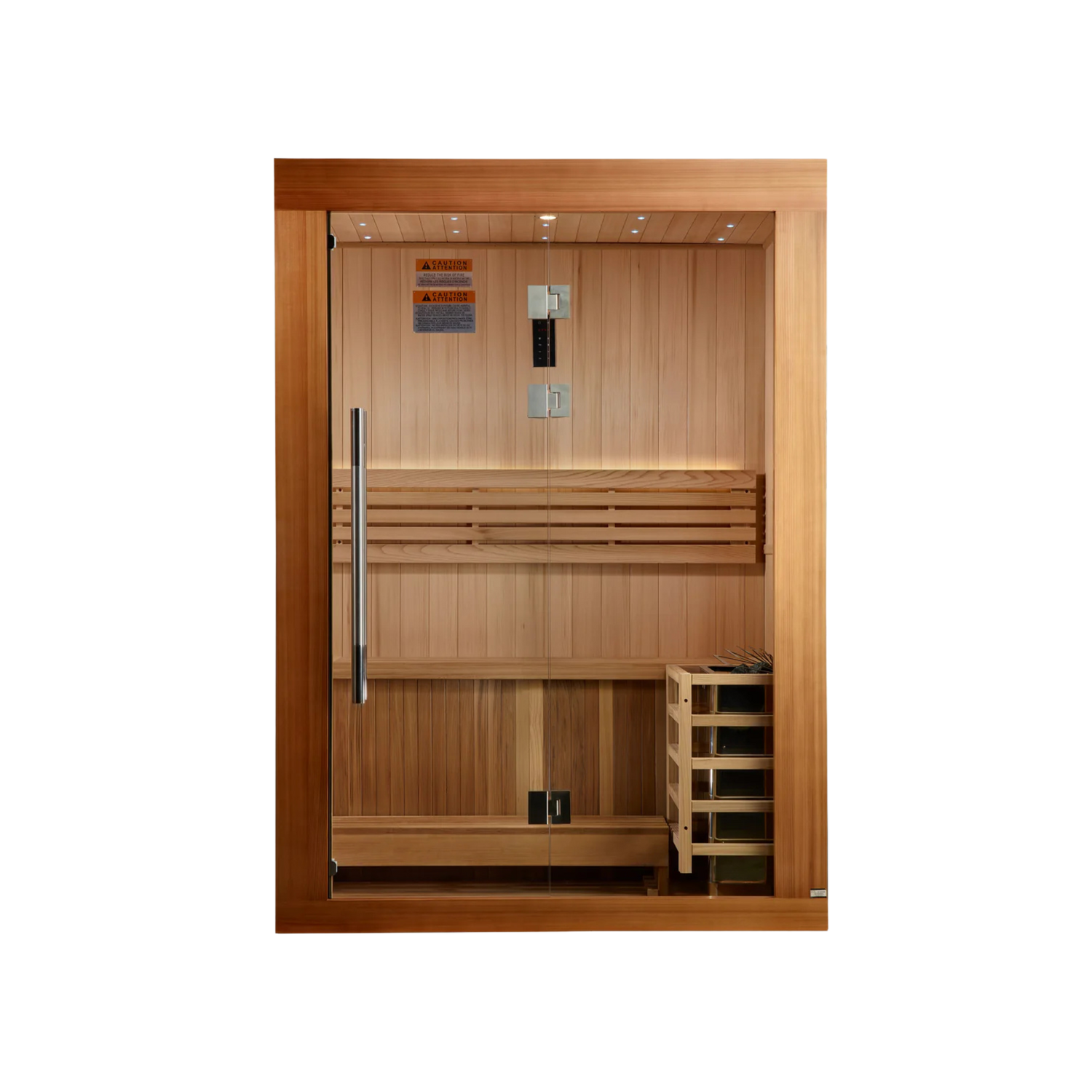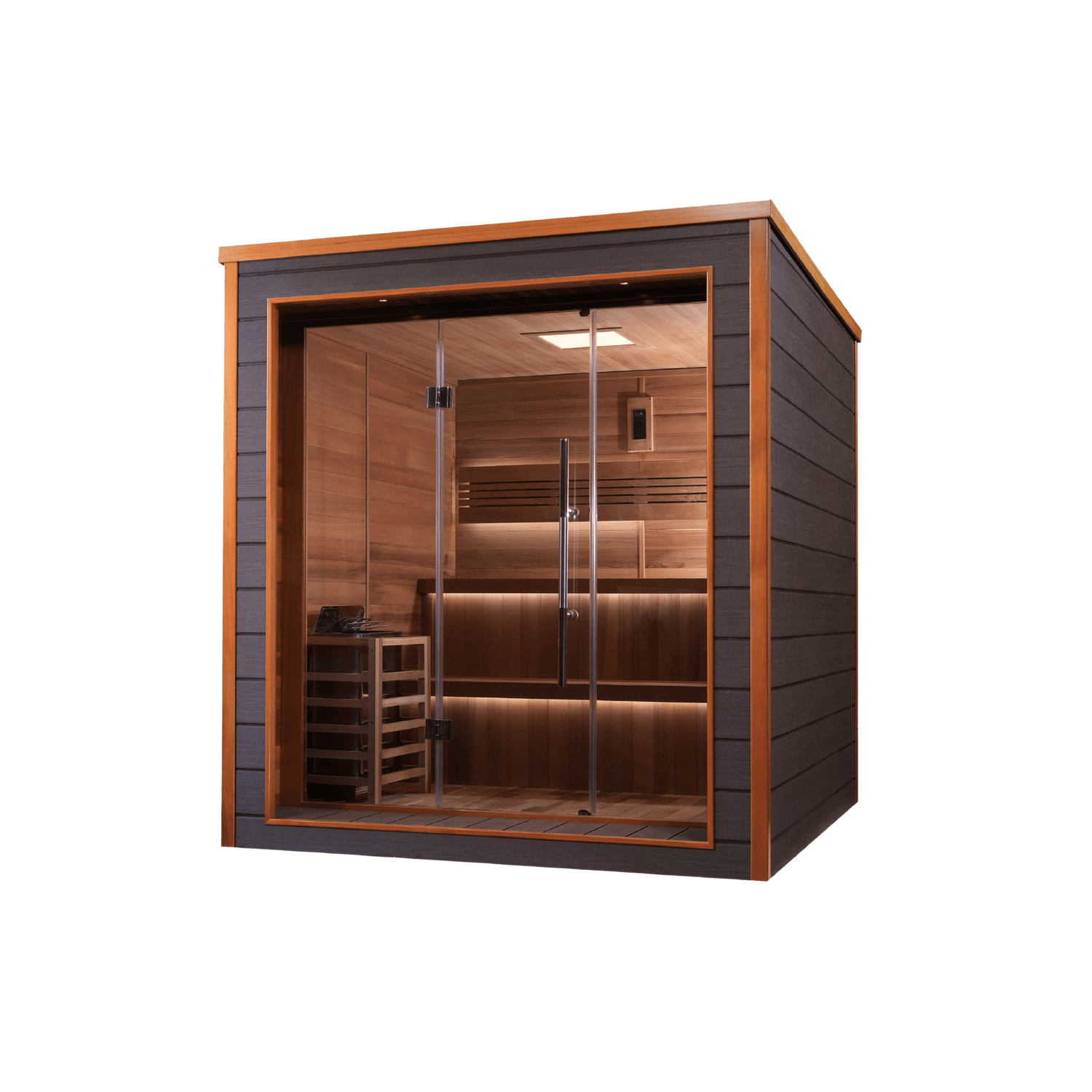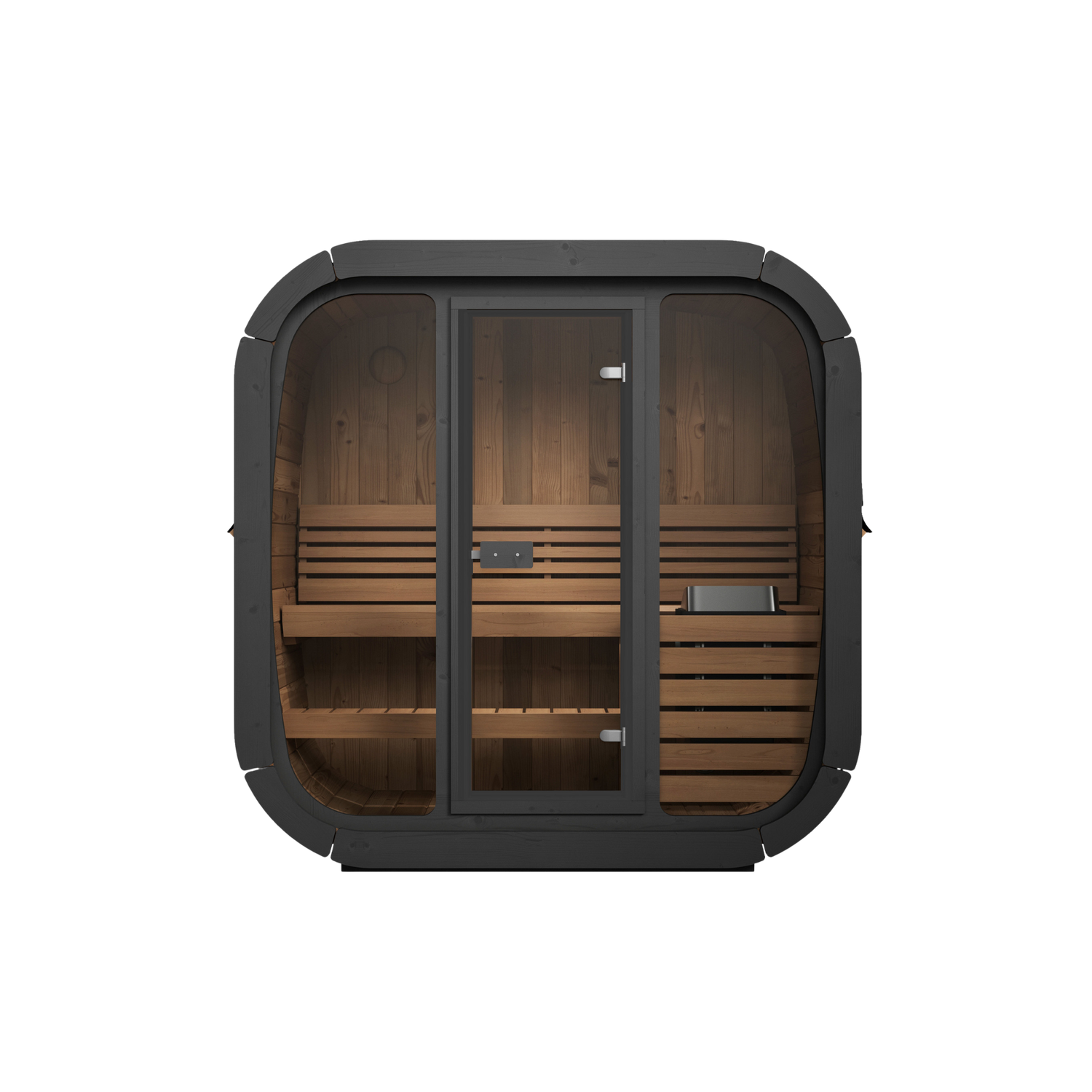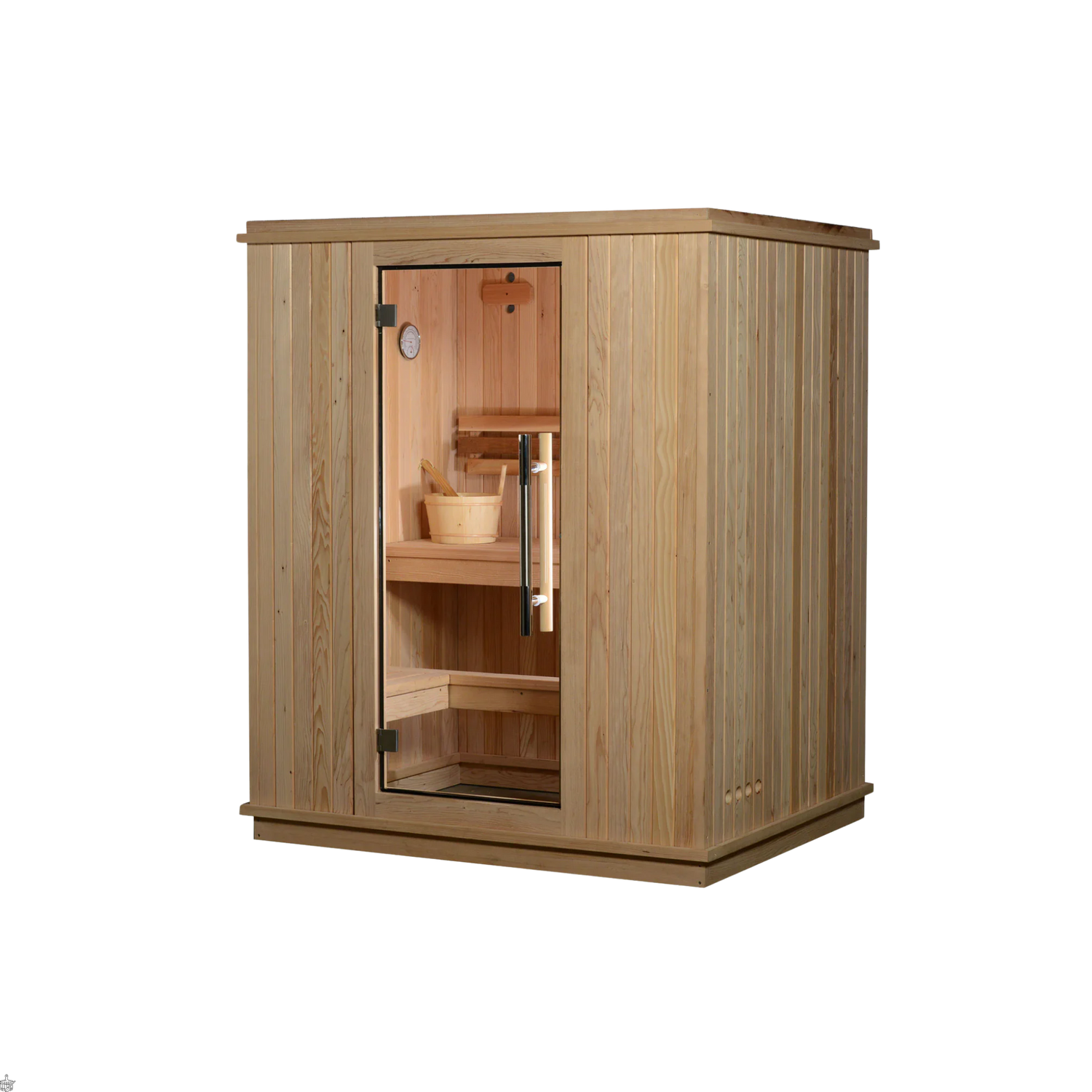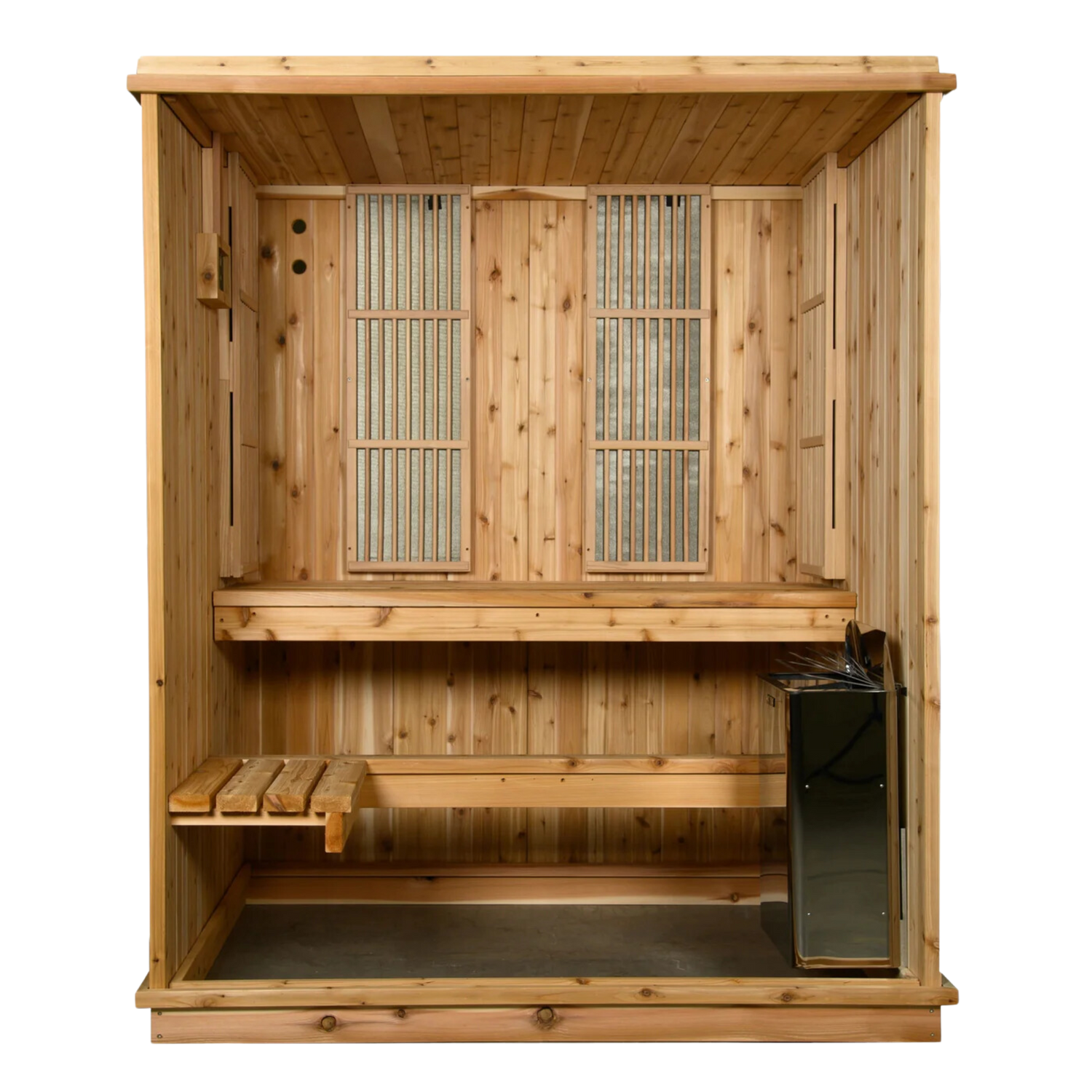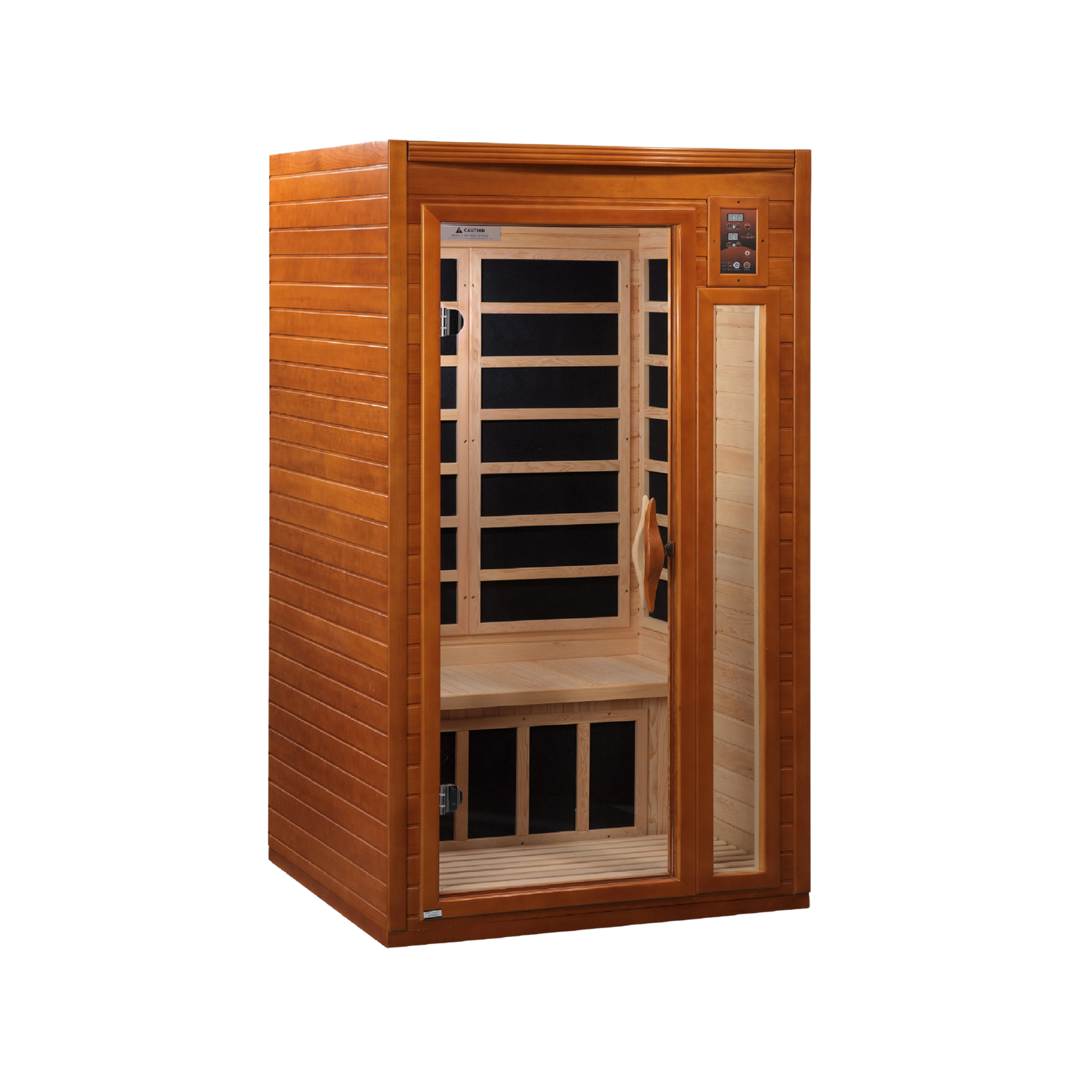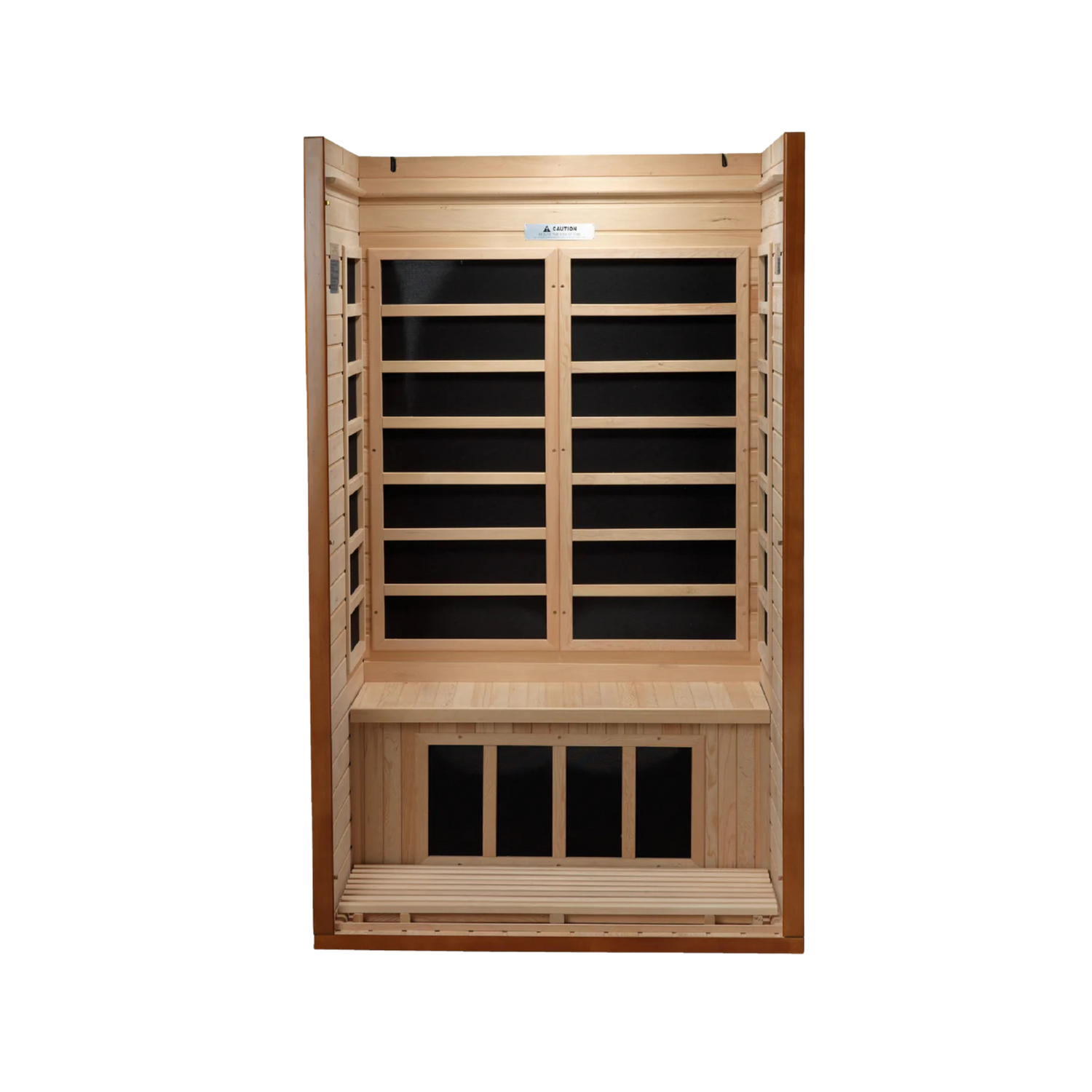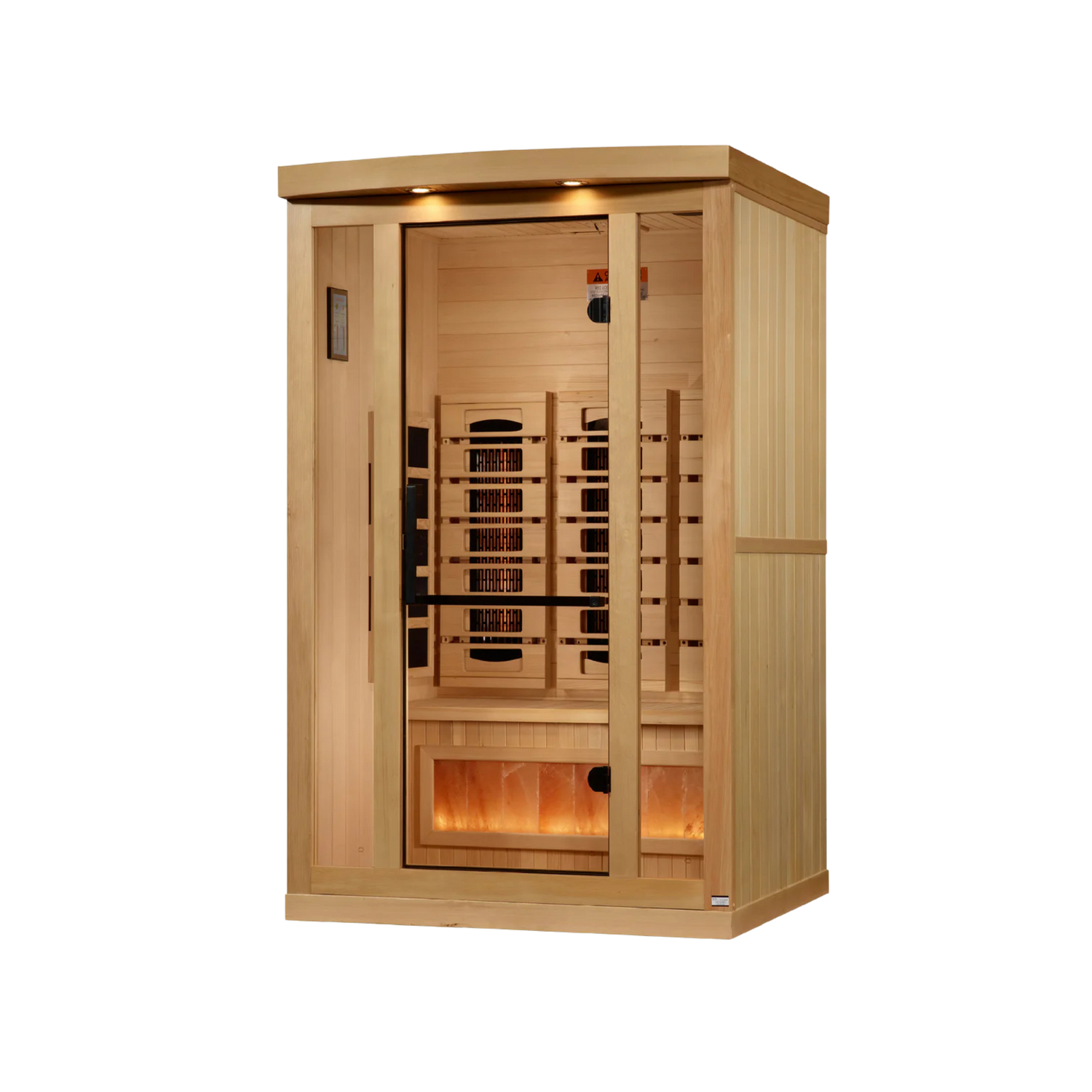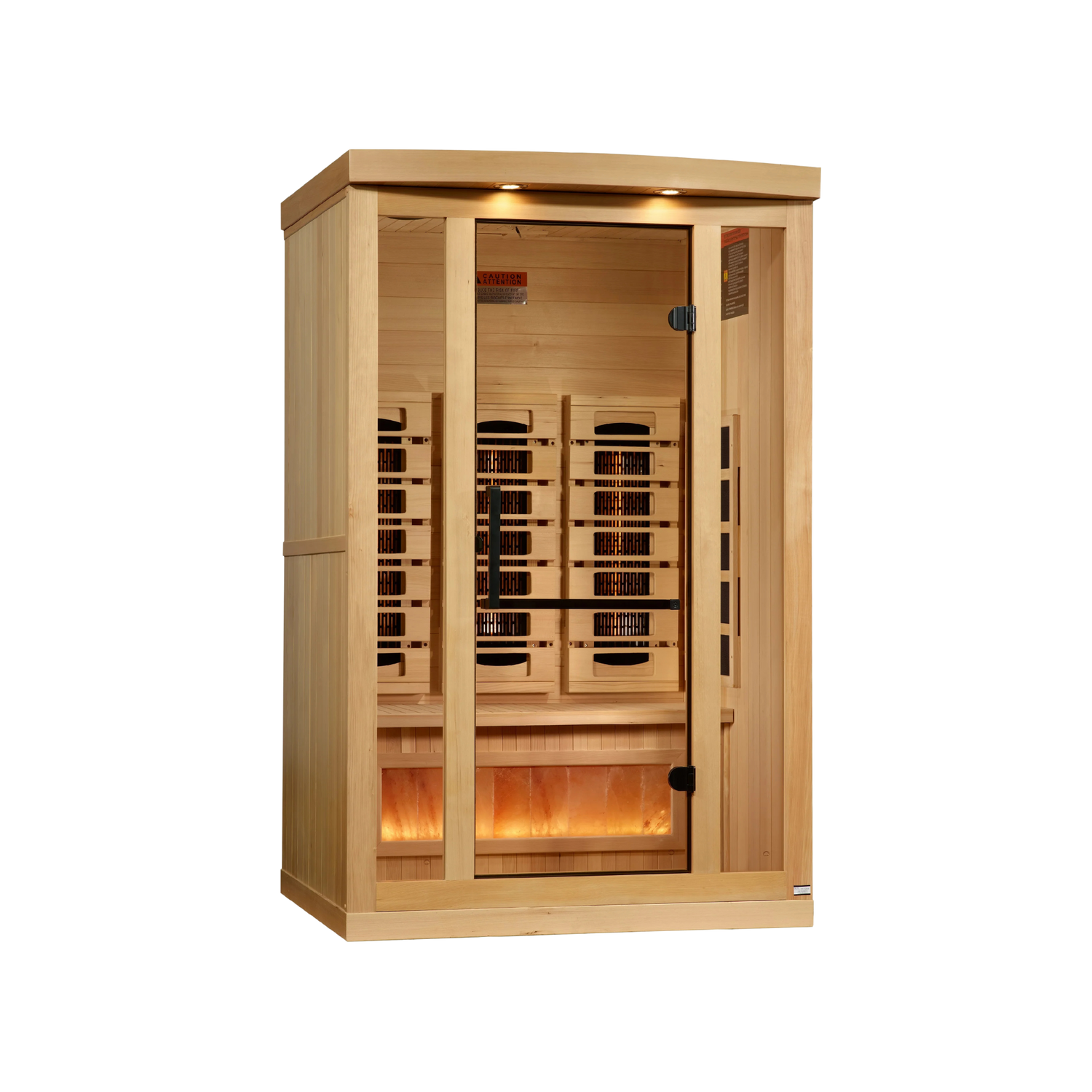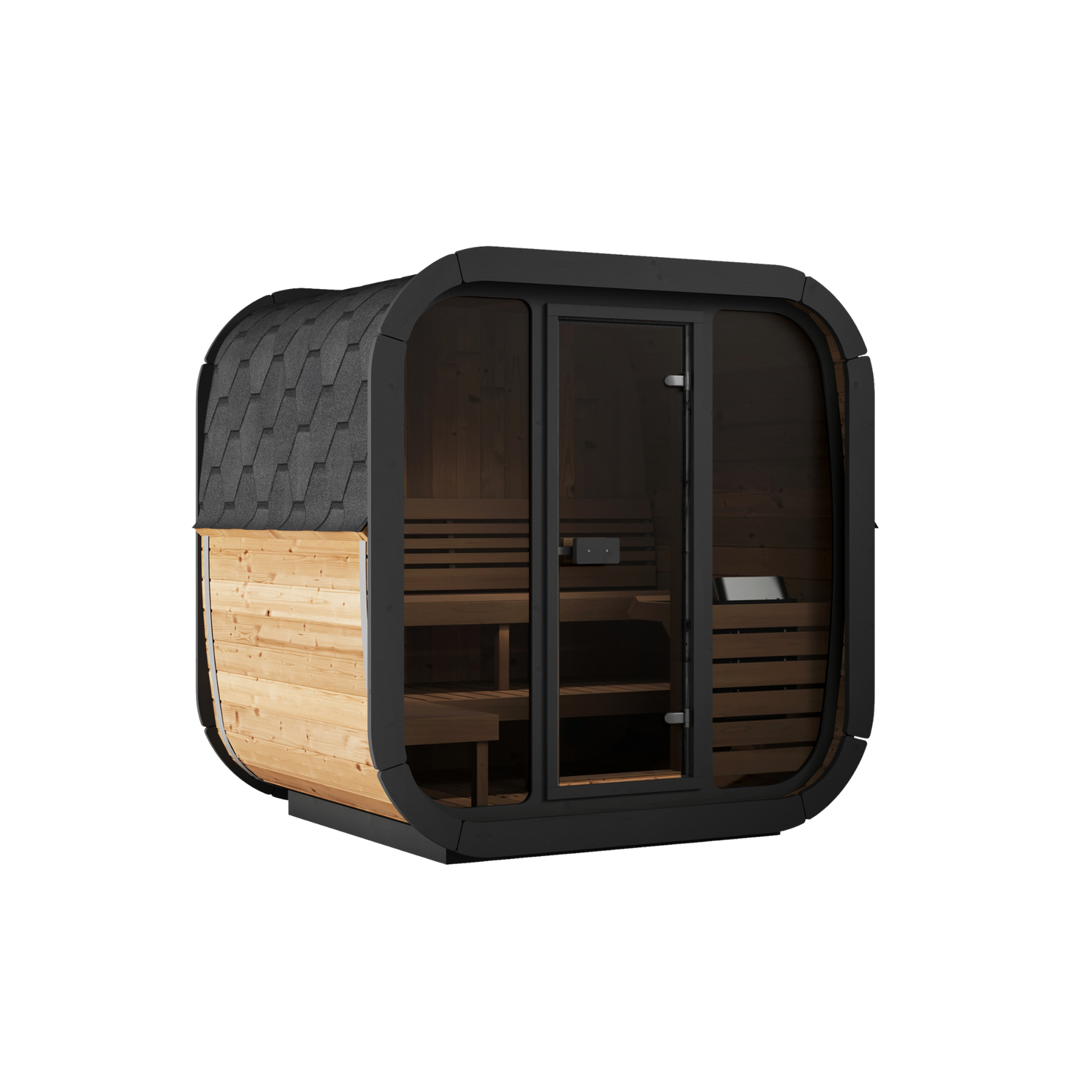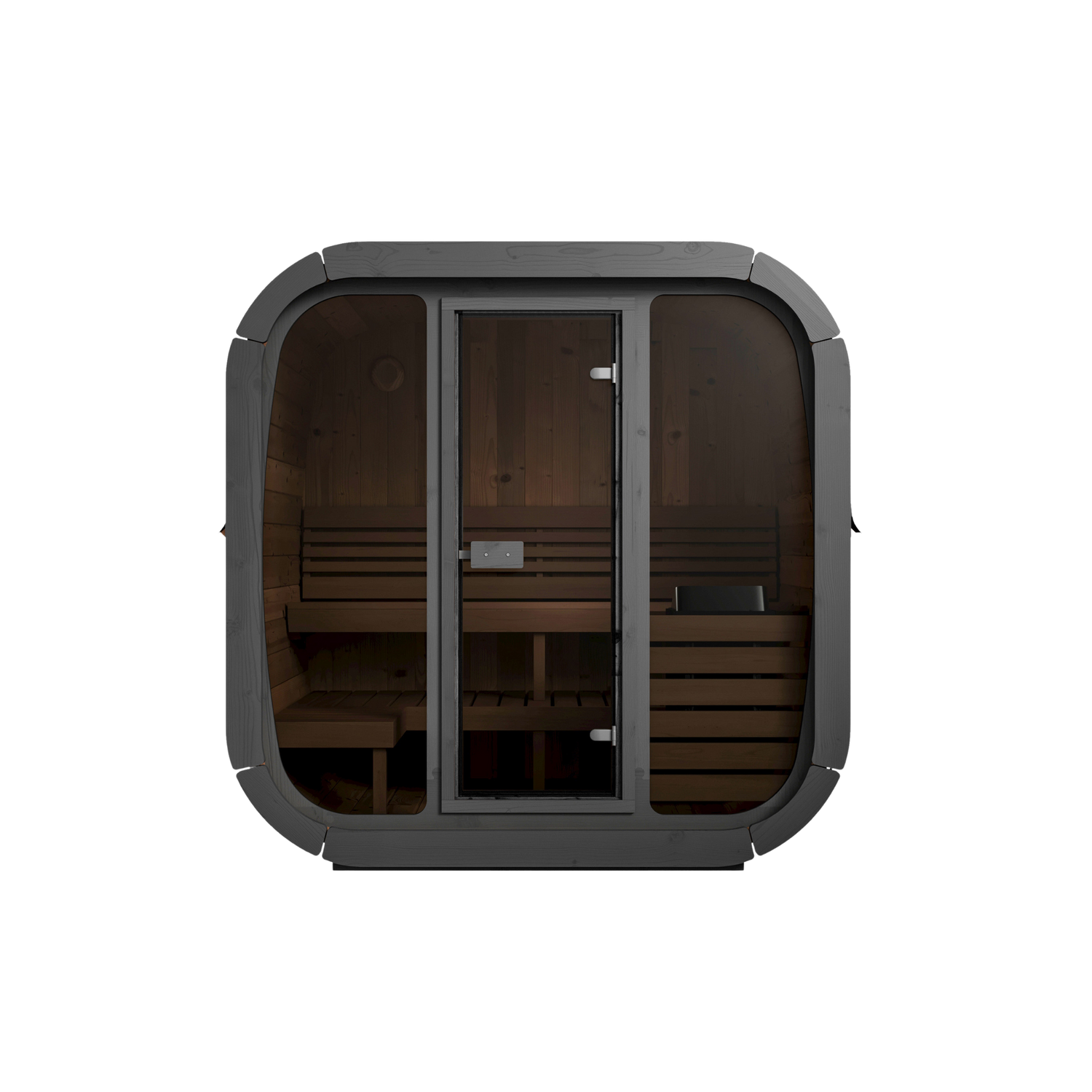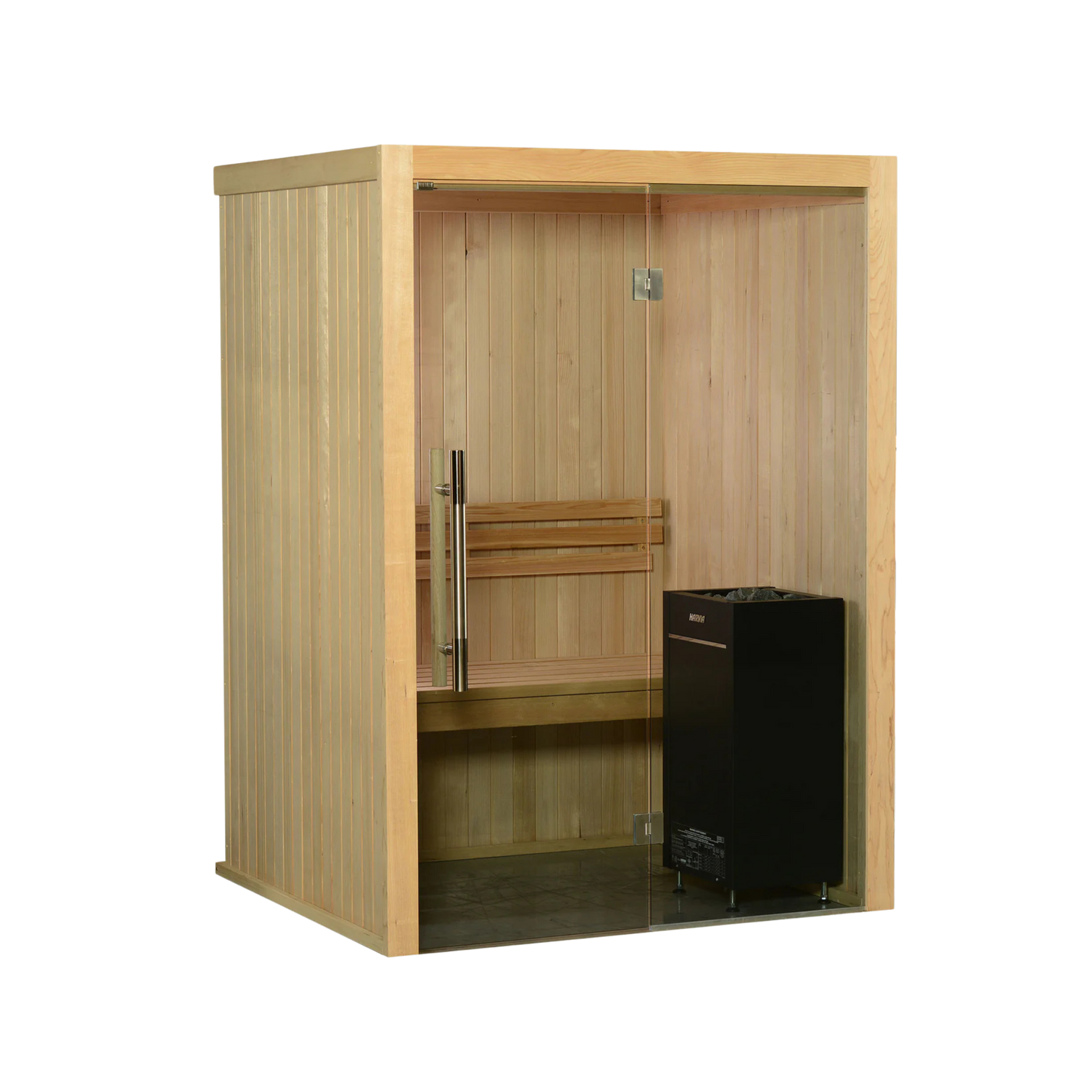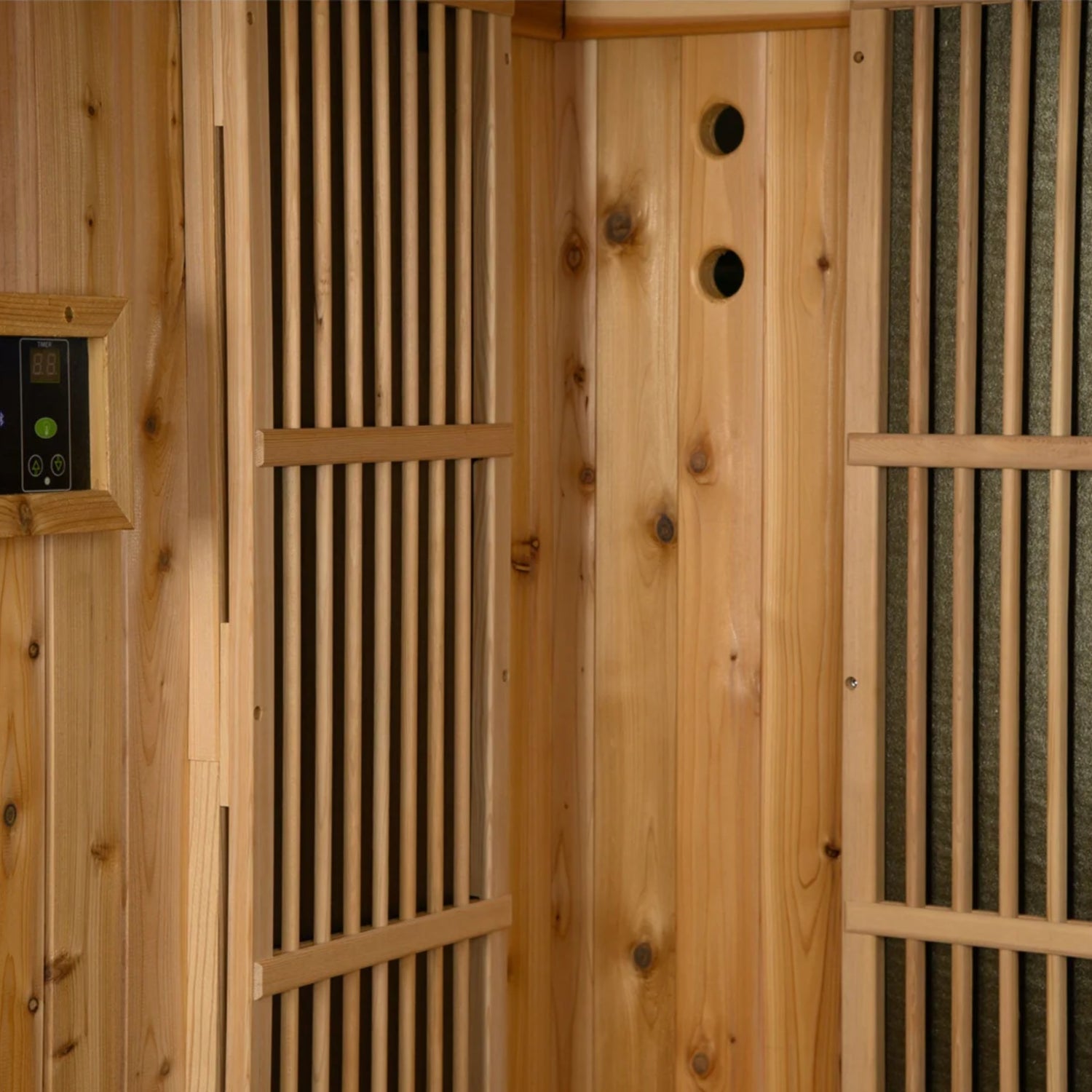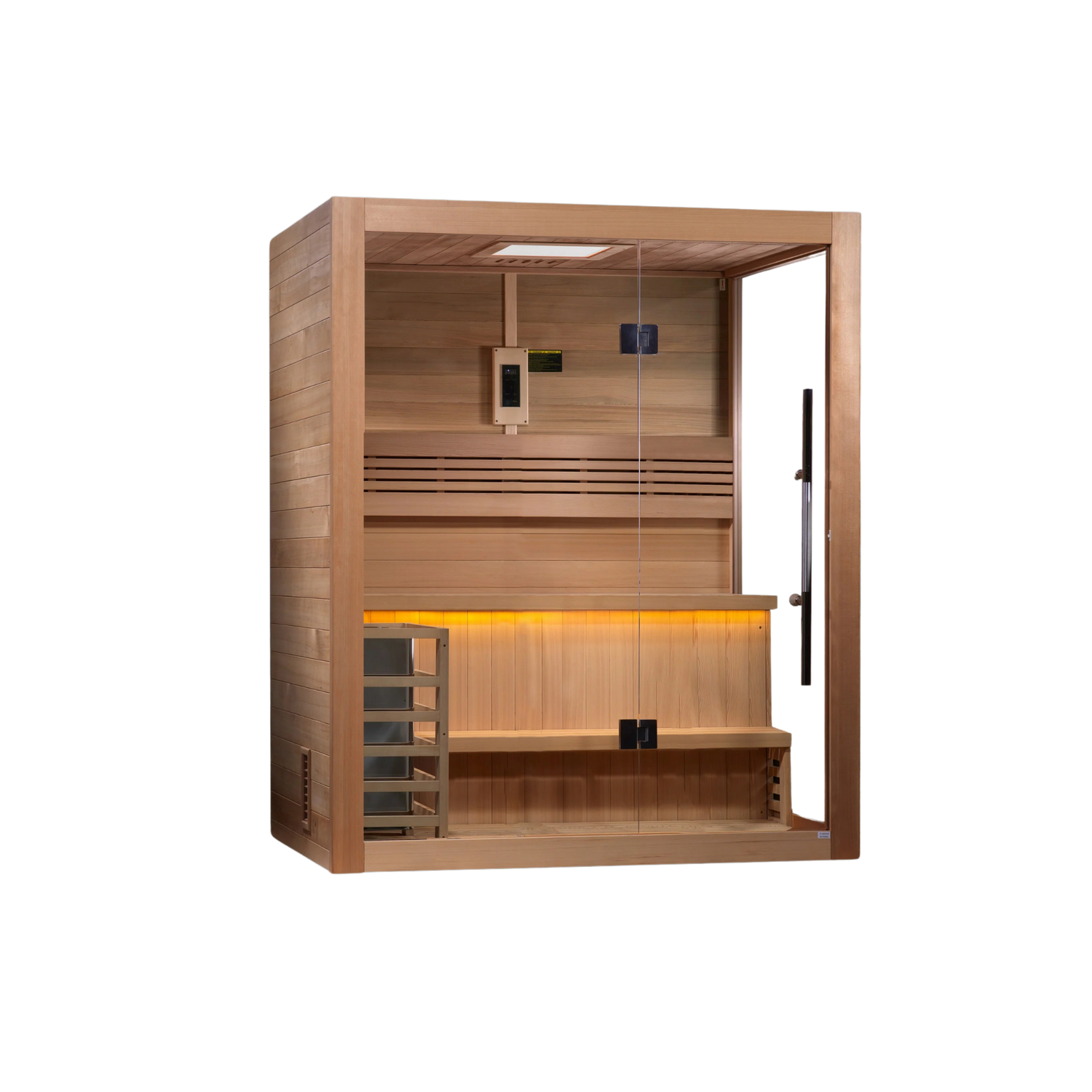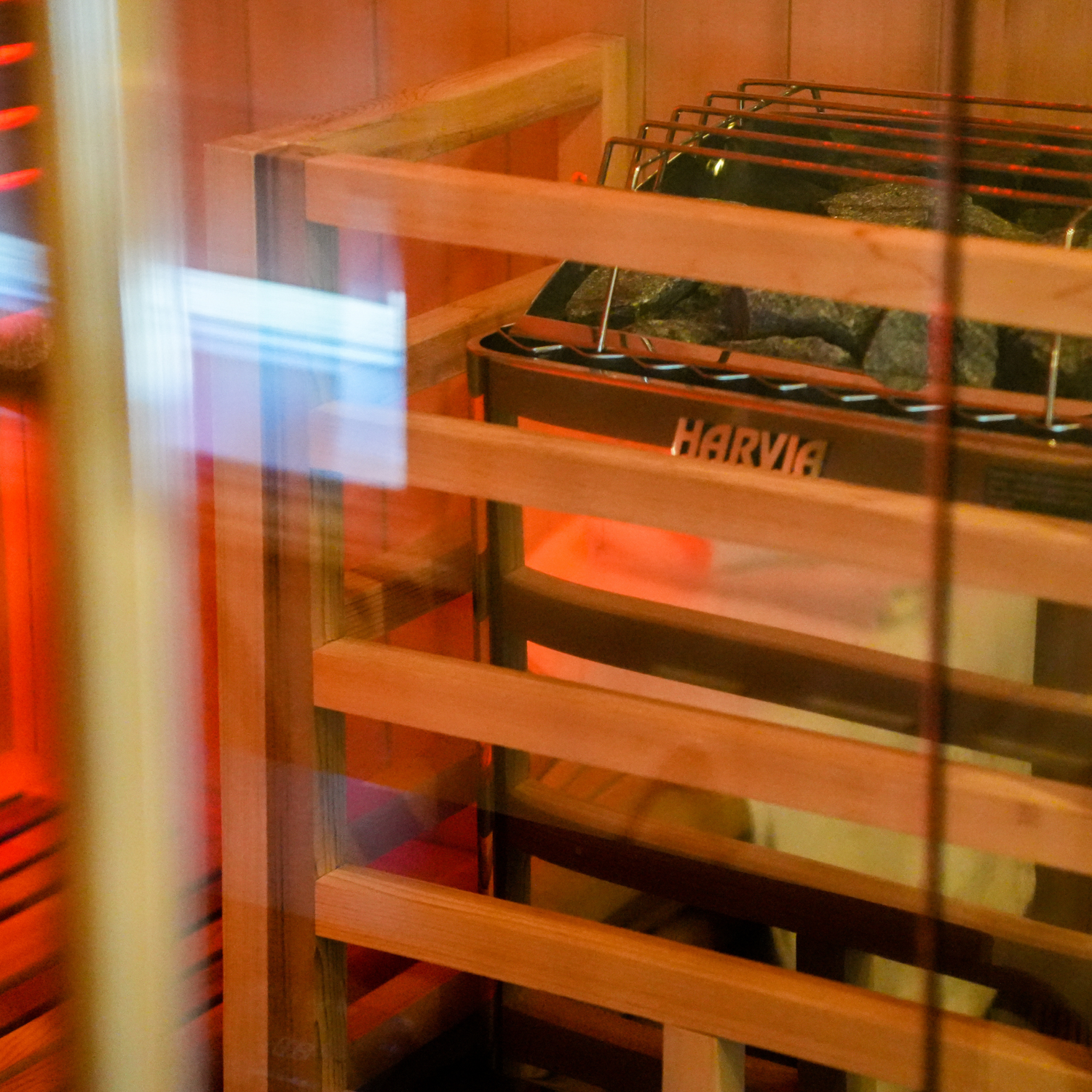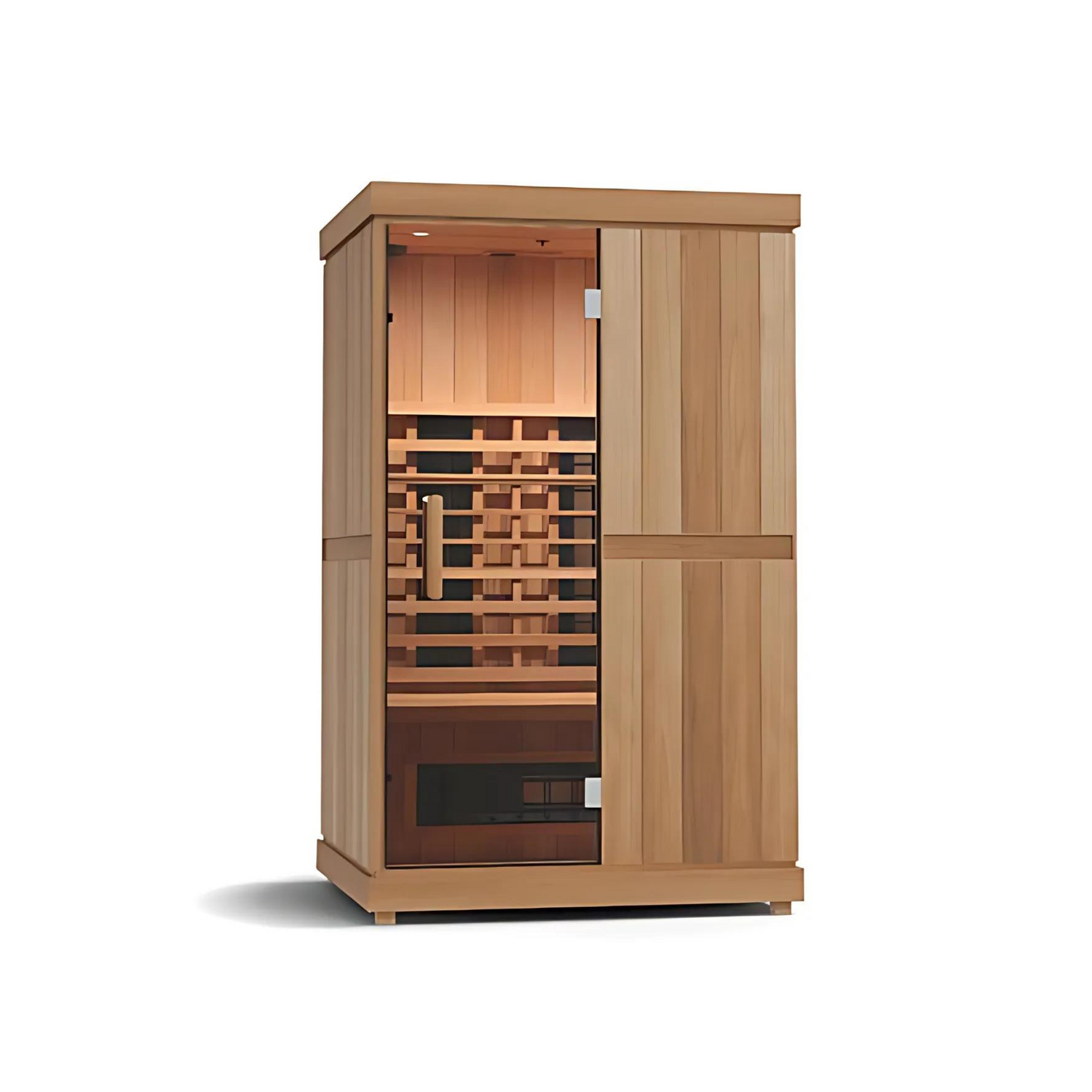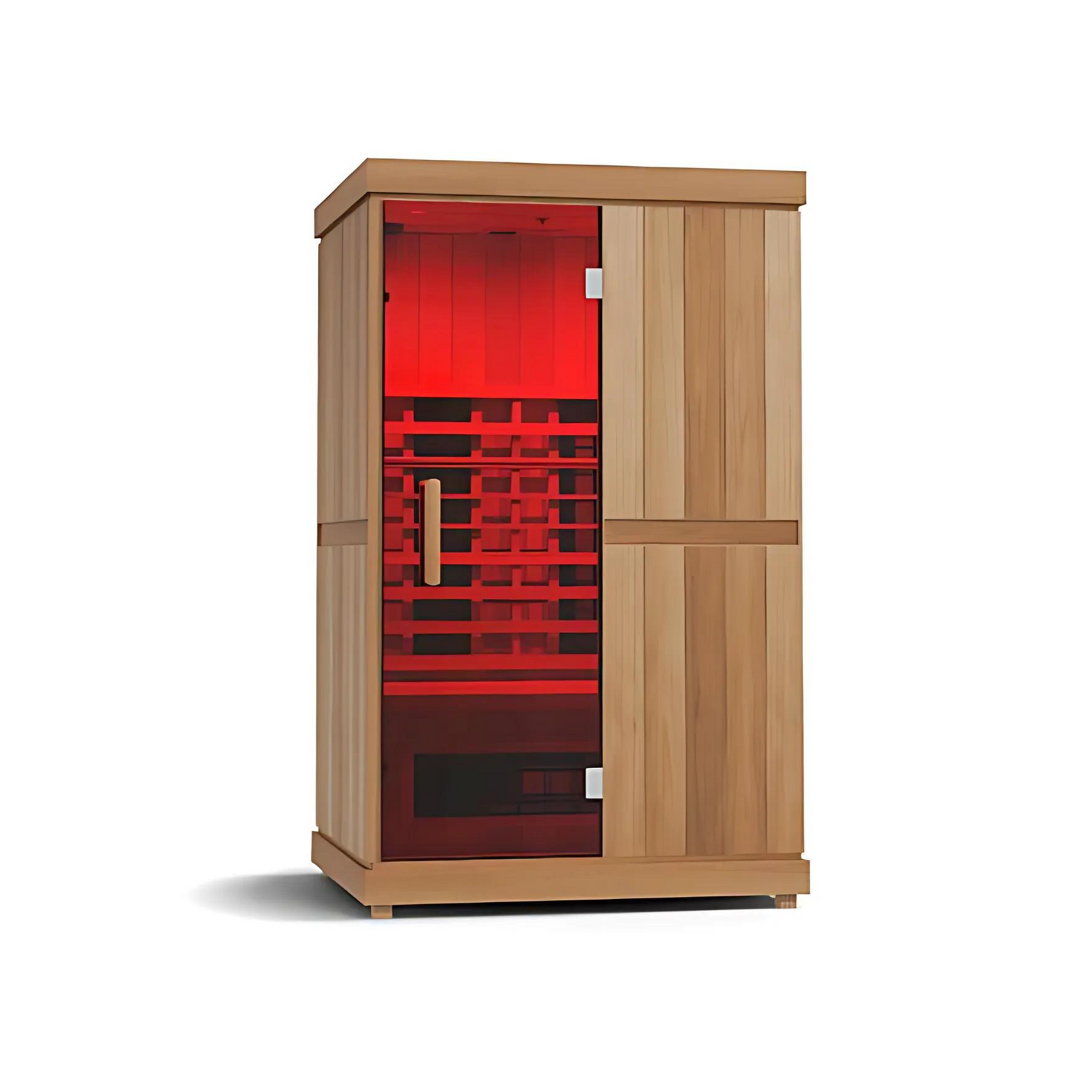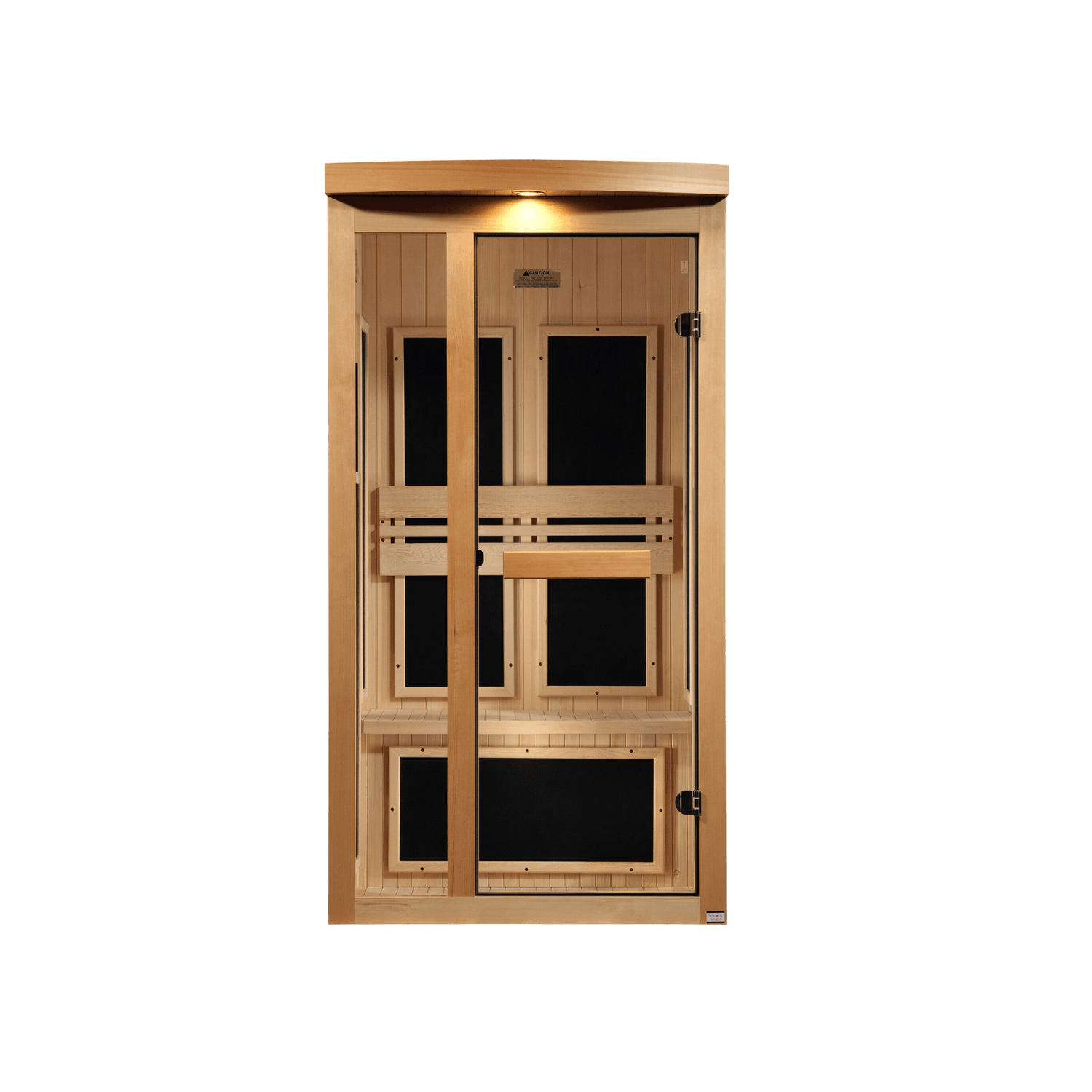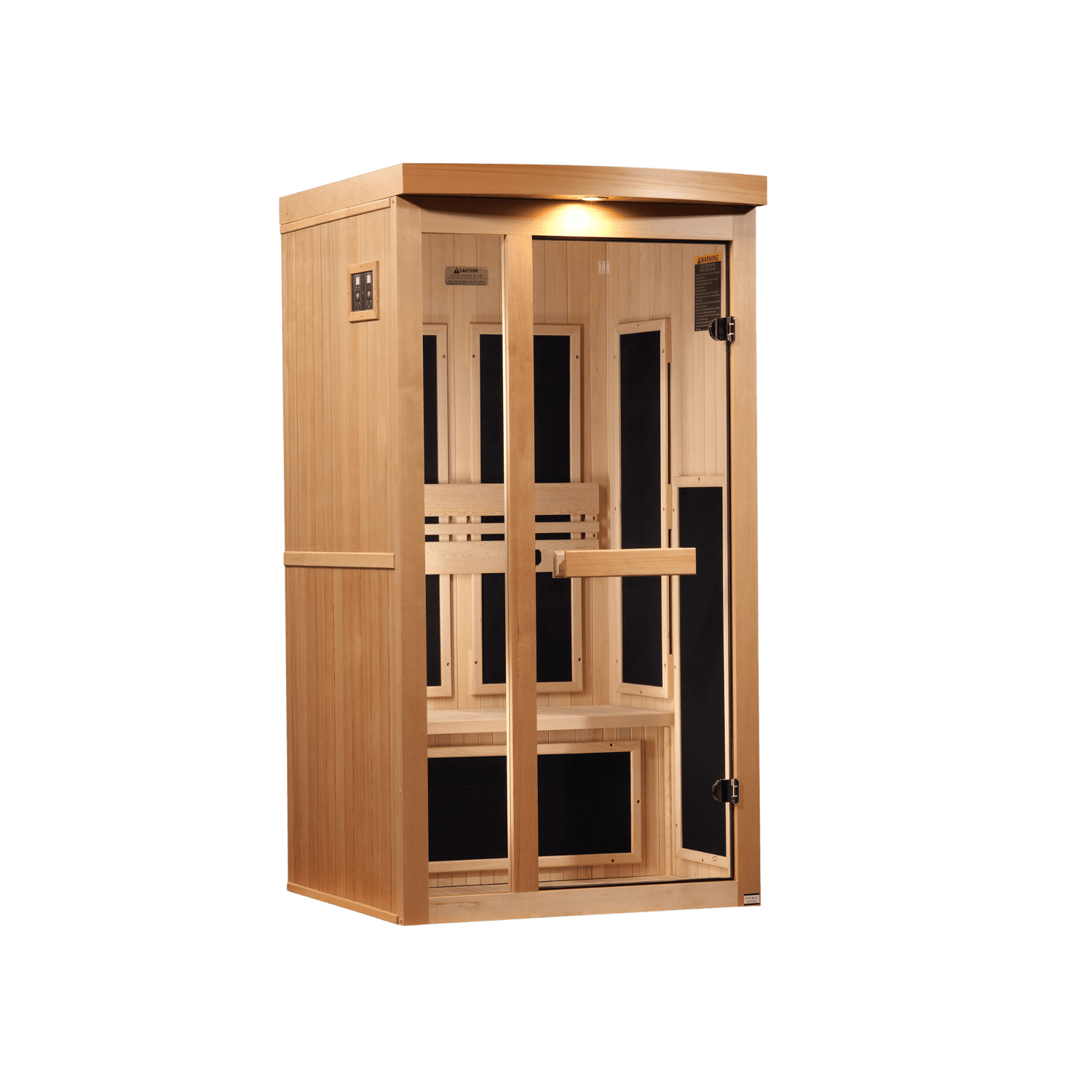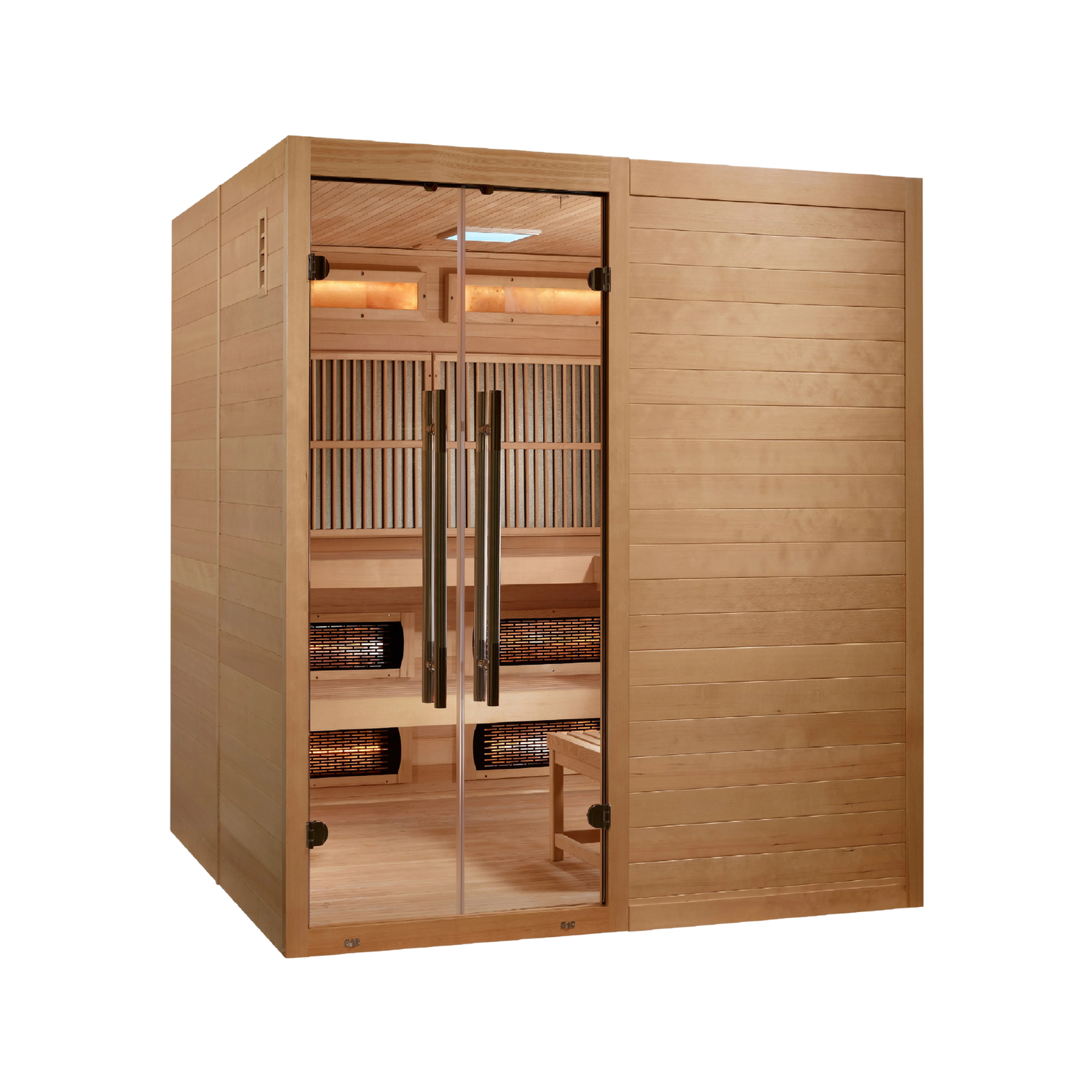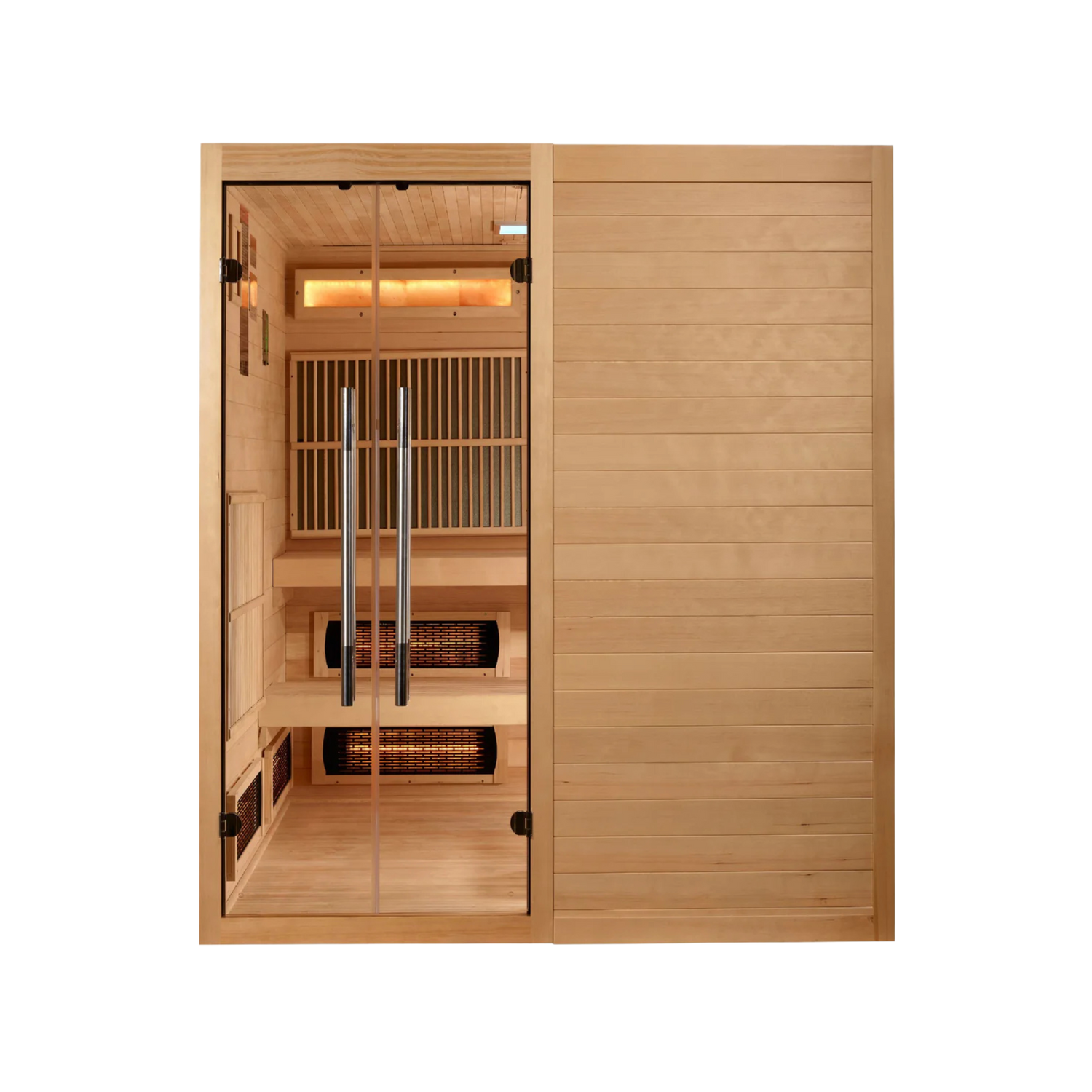Cardiovascular Health
condition your heart
Sauna sessions can be likened to a cardiovascular workout in certain aspects. The heat exposure elicits increased heart rate and enhanced blood flow, similar to what is experienced during moderate physical exercise, contributing to cardiovascular-like effects.

Dry heat vs. infrared
In the comparison of infrared saunas to traditional dry heat saunas concerning cardiovascular health, extensive research has shown that dry heat saunas tend to offer more robust benefits when the temperature exceeds 180 degrees Fahrenheit. Many infrared saunas typically do not reach such high temperatures. Dr. Andrew Huberman delves into this topic in-depth in his podcast episode titled "The Science & Health Benefits of Deliberate Heat Exposure."
One notable study, "Sauna bathing is associated with reduced cardiovascular mortality and improves risk prediction in men and women: a prospective cohort study" published in BMC Medicine, found that individuals who engaged in sauna sessions two to three times a week experienced a 27% reduced risk of cardiovascular-related mortality compared to those who used saunas only once a week. Moreover, those who frequented saunas four to seven times a week enjoyed a 50% reduction in their risk of cardiovascular events. These findings indicate that sauna use may extend its health benefits beyond the realm of reducing cardiovascular events, underscoring the potential of deliberate heat exposure in promoting cardiovascular health.
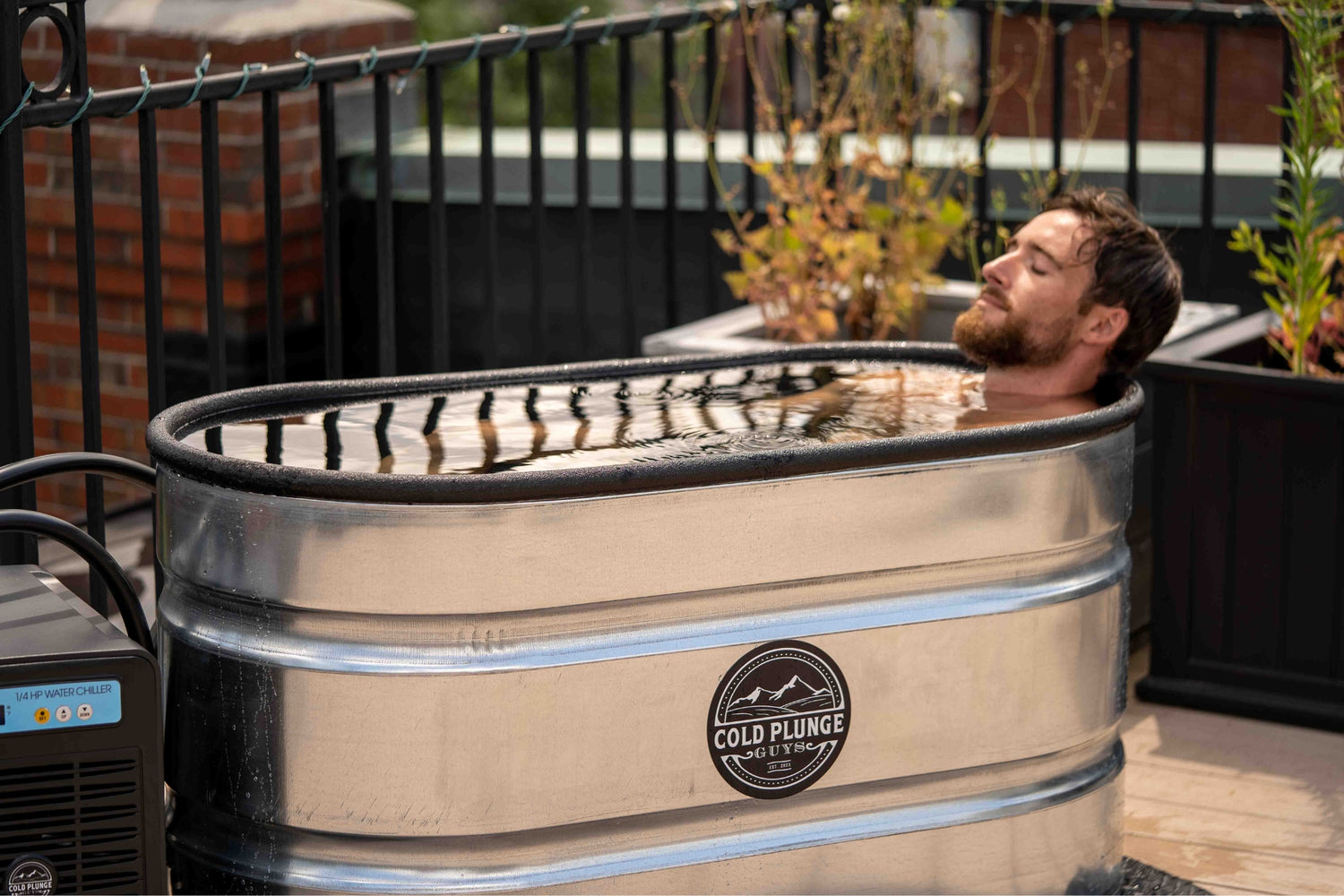
promoting life-saving proteins
Sauna use has been shown to upregulate levels of FOXO3, which in turn upregulate pathways related to DNA repair and clearing out of senescent or dead cells. These biological mechanisms may offset some of the cardiovascular risk and other aspects of mortality that were described earlier. One especially interesting thing about FOXO3 is that some people have additional copies or hyperactive versions of the gene, which is associated with longer life spans. There is no one sauna protocol designed specifically to increase FOXO3 or any other biological mechanism, but any deliberate & repetitive heat exposure (above 180 degrees F) followed up by cold exposure is likely to impact all of these.

dr. Huberman's reviewed protocol
It's important to note that there is not a one-size-fits-all all protocol for sauna, deliberate heat exposure, or cold exposure. All protocols will create their own unique set of benefits and depend greatly on the individual.
However, if you are interested specifically in maximizing cardiovascular benefits while promoting FOX03 as much as possible, the protocol Dr. Andrew Huberman discusses calls for four or more twelve-minute sauna sessions at 180 degrees Fahrenheit, followed up immediately by 2-3 minutes of cold exposure around 50 degrees Fahrenheit after each session.
If this is the benefit you're looking to accomplish with cold and heat exposure tools, we'd recommend getting a cold plunge and dry heat sauna over infrared.
Explore more benefits
references
Huberman, A. D. (2022b, April 25). The science & health benefits of Deliberate heat exposure | huberman lab podcast #69. YouTube. https://www.youtube.com/watch?v=EQ3GjpGq5Y8
Laukkanen, T., Kunutsor, S. K., Khan, H., Willeit, P., Zaccardi, F., & Laukkanen, J. A. (2018, November 29). Sauna bathing is associated with reduced cardiovascular mortality and improves risk prediction in men and women: A prospective cohort study - BMC medicine. BioMed Central. https://bmcmedicine.biomedcentral.com/articles/10.1186/s12916-018-1198-0
D.Jezova,Z.Radikova&M.Vigas(2007)Growth hormone response to different consecutive stress stimuli in healthy men: Is there any difference?,Stress,10:2,205-211,DOI:10.1080/10253890701292168


